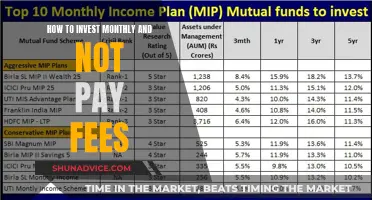
There are many factors to consider when deciding whether to buy a house as an investment. While homeownership is often seen as a key milestone and a part of the American Dream, it may not always be a wise investment decision.
One of the main advantages of buying a house is the potential for long-term appreciation and equity building. Historically, real estate values tend to increase over time, and this trend is expected to continue. Additionally, owning a home provides a sense of stability and can be a source of rental income if you choose to rent out a portion of your property.
However, there are also significant costs associated with buying and maintaining a house. The upfront costs, including the down payment and closing costs, can be substantial. Ongoing expenses such as mortgage payments, property taxes, insurance, and maintenance can also add up quickly. It's important to remember that a house may not always appreciate in value, and there is a risk of depreciation, especially in a declining housing market.
When deciding whether to buy a house as an investment, it's crucial to carefully consider your financial situation, short-term and long-term goals, and the dynamics of the current real estate market. While it can be a good investment for some, it may not be the right choice for everyone.
| Characteristics | Values |
|---|---|
| Long-term appreciation | The value of a house is likely to grow over the long term. |
| Money savings on rent | Money spent on rent is unrecoverable, whereas mortgage payments are not. |
| Greater financial stability | Homeowners have an average net worth of $300,000, compared to $8,000 for renters. |
| Tax benefits | Certain tax benefits come with owning a home, such as the ability to deduct mortgage interest and property tax payments. |
| Lifestyle benefits | Homeowners typically have more space than renters, and extra space may be more conducive to raising a family. |
| Decorating and customisation | When you own your home, you have control over decorating and customisation decisions, which can increase the home's value. |
| High acquisition costs | Housing prices and mortgage interest rates are currently high, making the costs associated with becoming a homeowner steep. |
| Appreciation is not guaranteed | The value of homes depends on the overall economy of the area. |
| Homeownership costs can increase | Property taxes, maintenance expenses and insurance premiums are likely to increase over time. |
| Renting offers more flexibility | It is easier to relocate as a renter, and homeowners tend to have less liquidity. |
What You'll Learn

Appreciation and equity building
Appreciation:
- Historical Perspective: The US real estate market has historically shown a long-term upward trend in housing prices. While past performance doesn't guarantee future results, this trend indicates a positive outlook for potential appreciation.
- Location, Location, Location: The location of your home is a significant factor in appreciation. Consider factors such as convenience, access to transportation, proximity to good school districts, available land/property, and the overall environment. Homes in desirable locations tend to appreciate more over time.
- Supply and Demand: The basic economic principle of supply and demand also comes into play. When demand for homes is high and supply is limited, home prices tend to increase. This can result in appreciation for homeowners in those markets.
- Timing the Market: Maximizing profits by timing the market can be challenging. Buying in a buyer's market (more sellers than buyers) can get you a better deal, but selling in a seller's market (more buyers than sellers) is ideal for higher profits.
- Market Fluctuations: Keep in mind that housing markets can fluctuate. While long-term trends are positive, there may be periods of decline or stagnation. The performance of the overall economy and local factors can influence these fluctuations.
Equity Building:
- Down Payment: Making a large down payment during the initial purchase of your property immediately contributes to your equity. A higher down payment means you own more of the home outright, and you'll build equity faster as you pay off the remaining debt.
- Shorten Loan Term: Opting for a shorter-term loan, such as a 15-year mortgage, can help increase your equity from the beginning. While your monthly payments may be higher, you'll pay off the loan faster and accumulate equity more rapidly.
- Extra Payments: Making additional payments towards your principal each month can help reduce your debt faster and improve your loan-to-value ratio. This accelerates your equity building.
- Home Improvements: Renovations, desired features, and basic upkeep can all contribute to increasing the value of your home and, consequently, your equity. However, be mindful that not all improvements may provide a positive return on investment.
- Mortgage Payments: As you consistently pay off your mortgage, your equity will build over time. Each payment includes interest and a portion that reduces the outstanding principal, gradually increasing your ownership stake.
Retirement Savings: Why Opt-Out?
You may want to see also

Tax benefits
There are several tax benefits associated with buying a house as an investment. Here are some key tax advantages to consider:
Mortgage Interest Deduction
Homeowners can typically deduct the interest paid on their mortgage debt. For married couples filing jointly, the deduction is applicable on the first $750,000 of mortgage debt. For those married and filing separately, the limit is halved to $375,000. This deduction can lead to significant tax savings, especially in the early years of a mortgage when a larger proportion of payments go towards interest.
Property Tax Deduction
Homeowners may also be able to deduct their property taxes, along with state and local income taxes, from their taxable income. The State and Local Taxes (SALT) deduction has a limit of $10,000 per year for married couples filing jointly and $5,000 for those married and filing separately. This deduction can provide substantial financial relief, particularly in areas with high property taxes.
Home Office Deduction
With the rise of remote work, the home office deduction has become increasingly relevant. If you own a business and use a part of your home exclusively for business purposes, you may be able to claim this deduction. This includes freelancers, contractors, and small business owners. However, it's important to note that employees who work from home are generally not eligible for this deduction.
Home Sale Exclusion
When selling a primary residence, homeowners may be able to exclude a significant portion of the capital gains from the sale. Specifically, individuals can exclude up to $250,000 of capital gains, while married couples filing jointly can exclude up to $500,000. To qualify, the home must have been owned and used as a primary residence for at least two of the last five years before the sale.
Tax Credits for Energy-Efficient Improvements
Tax credits are also available for homeowners who invest in energy-efficient improvements, such as solar panels or energy-efficient windows. These credits can directly reduce the amount of tax owed, providing additional financial benefits to homeowners.
While buying a house can offer these and other tax advantages, it's important to carefully consider all the costs and benefits of homeownership before making a decision. Consulting with a financial advisor or tax specialist can help individuals understand their specific tax situation and make informed choices about buying a house as an investment.
Ask and You Shall Receive: The Power of Questions in Attracting Investments
You may want to see also

Rental income
Firstly, it is important to choose the right property and location. Look for an area with low property taxes, good schools, a low crime rate, and easy access to amenities and public transportation. These factors will help you attract and retain tenants.
When it comes to financing, lenders typically charge higher interest rates on rental properties due to a higher rate of default. You will also need a higher down payment, usually between 15% and 25% of the property's value. It is recommended to have cash reserves to cover three to six months' worth of mortgage payments and other expenses.
Maintenance and upkeep costs can impact your rental income, so it is advisable to set aside around 1% of the property's value for repairs and maintenance annually. You can either manage the property yourself or hire a property manager, who typically charges between 8% and 12% of the collected rents.
To determine if the rental income will cover your costs, use tools like the 1% rule, gross rent multiplier (GRM), or the 2% rule. The 1% rule states that the monthly rent should be at least 1% of the purchase price. For example, if you buy a $300,000 property, you should aim for at least $3,000 in monthly rent. The GRM calculates the number of years it will take to pay off the investment using only rental income. A lower GRM indicates a more lucrative property.
Lastly, be aware of the landlord-tenant laws in your state and local area. Understand your rights and obligations regarding security deposits, lease requirements, eviction rules, and fair housing laws.
By carefully considering these factors, you can make an informed decision about buying a house as an investment property and ensure that your rental income covers your costs and provides a steady income stream.
Retirement Investment Strategies: Navigating Your Savings Options
You may want to see also

High acquisition costs
The acquisition costs of buying a house are high. Housing prices have skyrocketed, and mortgage interest rates are steep, reducing your buying power and making a home purchase today more expensive than it used to be. Acquisition costs are the total expenses incurred in procuring assets, goods, or services. In the context of buying a house, these costs include the purchase price, shipping and transportation costs, installation and setup costs, legal and administrative costs, regulatory and compliance costs, financial costs, inventory and asset costs, and operational costs.
For example, if you buy a $250,000 home, closing costs can range from $7,500 to $15,000, or 3% to 6% of the loan amount. Maintenance and regular upkeep can cost between $2,500 and $10,000 per year, or 1% to 4% of the home's total value. These costs include lawn mowing, gutter cleaning, appliance servicing, and pest control.
In addition to the direct costs of acquiring the property, there are also indirect costs associated with homeownership. Property taxes, maintenance expenses, and insurance premiums are likely to increase over time. As a result, the overall cost of buying a house is significantly higher than the initial purchase price.
Furthermore, there are opportunity costs associated with buying a house. The money spent on the house could have been invested elsewhere, such as in the stock market, building a business, or acquiring new skills. These opportunity costs should be considered when evaluating the acquisition costs of buying a house.
It is important to carefully consider the high acquisition costs of buying a house and weigh them against the potential benefits of homeownership. While owning a home can provide stability and build wealth over time, the upfront costs can be substantial and should not be overlooked.
Supplies and Investment Strategies: Uncovering the Intricacies of Buying Activities
You may want to see also

Maintenance and repair costs
There are several types of maintenance and repair costs to consider:
- Lawn care and landscaping: This includes mowing, watering, tree trimming, and gardening. On average, Americans spend about $1,200 to $2,400 per year on lawn care.
- HVAC cleaning and maintenance: Cleaning air ducts helps improve air quality in the home and costs around $376 on average. Smaller maintenance tasks and filter replacements should also be budgeted for.
- Rain gutter clearing: Gutters should be cleaned one to three times per year to prevent damage to the home's interior and exterior. The average cost of gutter cleaning is about $161, but this task can also be done yourself.
- Pest control: Paying for pest control services can cost thousands of dollars, but the average cost of preventative measures is $176.
- Smoke alarm batteries: The National Fire Protection Association (NFPA) recommends replacing smoke alarm batteries once per year. A 10-year smoke alarm costs around $50 upfront but can save money in the long run.
- Housekeeping and house cleaning: Americans spend over $830 per year on cleaning supplies.
In addition to these routine maintenance tasks, there are also larger, less frequent expenses to consider, such as roof replacement or appliance repairs. To prepare for these costs, it is recommended to set aside 1-4% of your home's value each year for maintenance. For example, for a $436,800 home, this would equate to $4,368 to $17,472 per year.
While maintenance and repair costs can be significant, they are essential to maintaining your home's value. Regular maintenance can add 1% in value annually to your home, according to a study by the University of Connecticut and Syracuse University. Additionally, annual upkeep can help prevent more expensive repairs or system replacements down the line.
Dividend-Paying ETFs: Smart Investment or Missed Opportunity?
You may want to see also
Frequently asked questions
It depends on your financial situation and the timing of your purchase. Buying a house can be a smart investment if you're financially stable and looking to build equity in the long term. However, it can also be a risky investment due to high acquisition costs and the possibility of depreciation.
One of the main benefits is long-term home and equity appreciation. Your home is likely to grow in value over time, and you can sell it for a substantial return on your investment. Additionally, you save money on rent, gain financial stability, and enjoy tax benefits.
One of the risks is the possibility of depreciation. While the housing market generally appreciates over time, there may be situations like the subprime mortgage crisis of 2007, which caused housing prices to drop significantly. Other risks include high acquisition costs, closing costs, and ongoing maintenance expenses.
The location of the house is a crucial factor in how much it appreciates. Homes in desirable locations, with proximity to parks, schools, and entertainment, are more likely to gain value. Additionally, the size of the home relative to nearby homes and mortgage interest rates can also impact its value.
There are several alternatives to consider, such as investing in the stock market, bonds, high-yield savings accounts, or other types of real estate, like rental properties. It's important to weigh the risks and potential returns of each option before making a decision.







